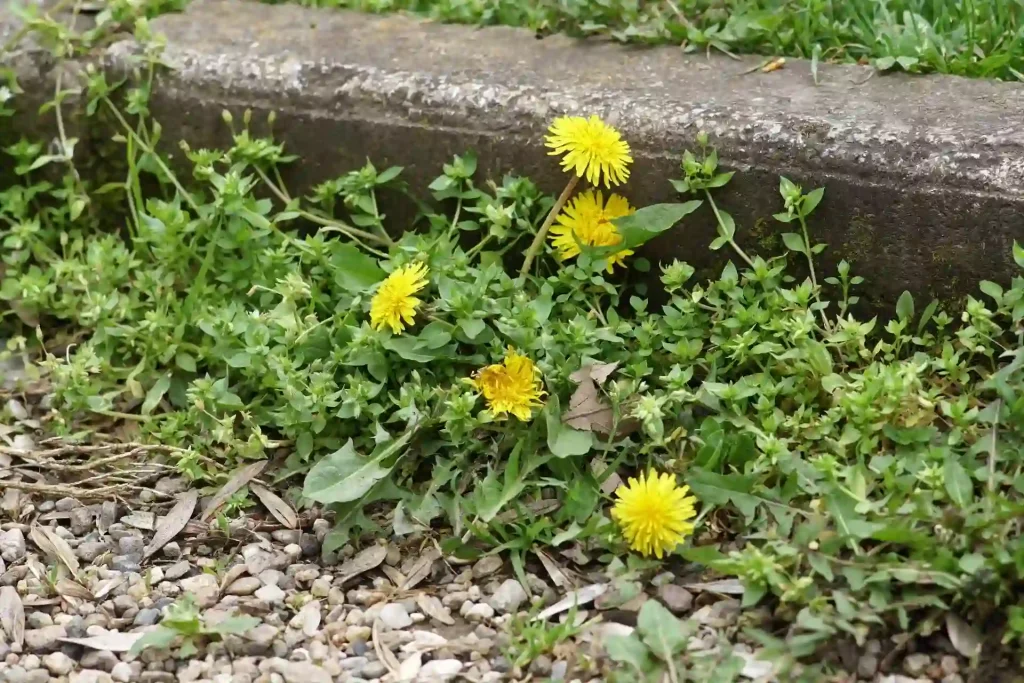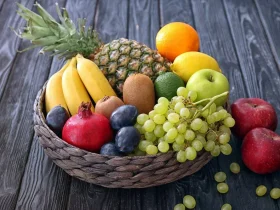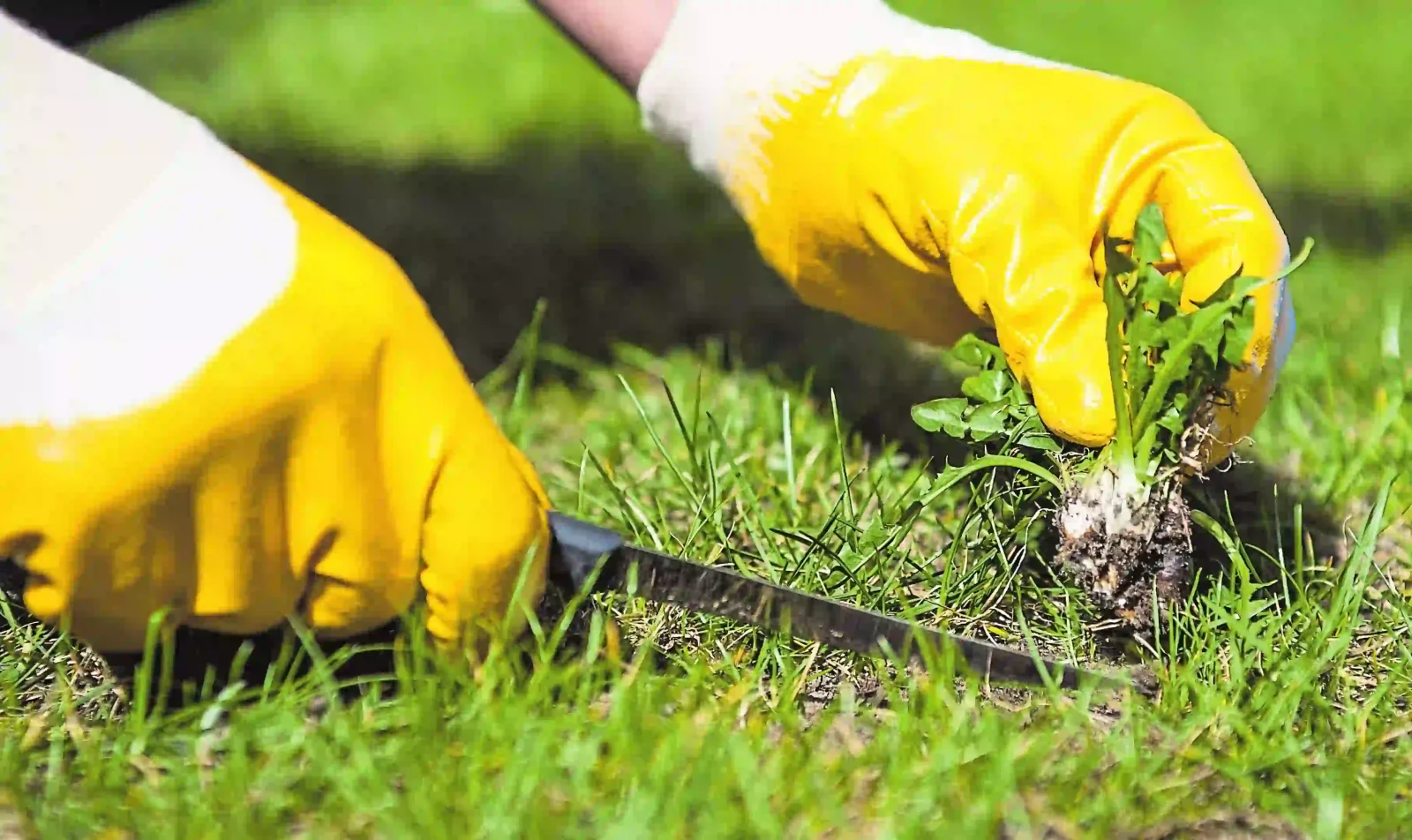Every plant has its purpose. Some, like weeds, are not good for much except to be pulled out of the way and discarded. But sometimes, they can have deeper symbolism and meaning.
In the Bible, some plants and weeds bear symbolism that can teach us about God and tell us things about our relationship with him. Let’s take a closer look at what they say about God’s character, the nature of sin, and how we must treat them in our lives.
Weeds in the Bible
Weeds are mentioned multiple times in the Bible in a negative context. They represent negative aspects of human characters, such as jealousy, anger, selfish ambition, pride, envy, greed, and lying. Just as weeds can hinder physical growth by stealing nutrients from desirable plants, spiritual weeds can impede our spiritual growth.
The same is true for false Christians who can cause us to stumble if we are not vigilant. It is important to confront these weeds within ourselves instead of judging others. Laziness and lack of understanding are also mentioned as spiritual weeds that need to be removed.
Through this metaphor, we must look within ourselves to understand the nature of God and seek to remove spiritual weeds from our lives.
What Does the Bible Say About Weeds?
Weeds in the Bible are always equated with negative connotations like thorns, thistles, briers, choking, stealing, and entangling growth. The weeds are metaphors for negative attitudes such as jealousy, anger, selfish ambition, pride, envy, greed, lying, laziness, and spiritual neglect.
The Parable of the Weeds tells the story of a farmer who sowed good seeds in his field, but an enemy planted weeds among the wheat. God or Jesus can be considered the main character of this parable, and the field represents the world.
Jesus’ agricultural listeners would have understood perfectly why the weeds had to be uprooted and burned.
Thus, Biblical weeds are more than just physical plants; they are symbols of the evil in the world. The metaphor is relevant to every Christian who believes that a weed-choked the word of God in the minds of some believers, making them unproductive.
This narrative tells us that if we let negativity and malice overtake our lives, our potential for growth and fruitfulness, like a wheat crop, will be hindered.
Parable of the Soils
The Bible has much to say about weeds and their significance in the Kingdom of God. Two parables, the Parable of the Soils and the Parable of the Weeds, provide insight into this topic. The Parable of the Soils describes a farmer sowing seed in four places, representing the receptiveness of people’s hearts to the Word of God.
Meanwhile, the Parable of the Weeds depicts a farmer planting wheat, but an enemy sowing weeds among the wheat. The farmer chooses to let them coexist until the harvest when the wheat is separated from the weeds.
These parables warn of the dangers of what grows in the heart, caused by Adam’s disobedience and the curse placed on the ground. Nonetheless, both illustrate the importance of allowing good and evil to coexist until the final judgment.
Furthermore, they teach about the Kingdom of God and the consequences of choosing to follow the Word of God or not. Understanding the role of weeds in these parables provides insight into the nature of God and His plan for His followers.
Parable of the Weeds
The parable of the Weeds in the Bible teaches that good and evil will coexist until Judgment Day. In this allegory, wheat represents good and weeds represent evil in the Kingdom of God. The parable has enduring lessons that are still relevant today.
It reveals that Satan is the enemy, while the Son of Man (Jesus) is the sower of good seed. The “sons of the kingdom” are represented by the good source, while the field where the ministry of the Gospel occurs in the world.
The parable of the Weeds provides valuable insight into the nature of God, reminding us that good and evil will coexist until the end of the day. It’s a testament to the fact that God is patient, merciful, and just.
Despite the presence of evil, the Kingdom of God will ultimately triumph in the end. We can draw strength and comfort from this story as we work to overcome the struggles that we face in our everyday lives.
Weeds In Your Life
Weeds are a common theme in the Bible, and they can teach us important lessons about the nature of God. Biblically, weeds are defined as care for worldly things, deceitful riches, and pleasures. These include jealousy, anger, pride, and laziness, which all have the potential to pull us away from God.
Weeds also have a physical impact on our lives by hindering the growth of desirable plants and robbing them of moisture and nutrients. This is demonstrated in the Parable of the Weeds, which teaches us that good and evil exist simultaneously in the world, but will ultimately be separated through God’s judgment.
Laziness and lack of understanding can also be seen as spiritual weeds that can hinder our growth and progress as Christians. By recognizing and removing these weeds from our lives, we can cultivate a more fruitful and fulfilling relationship with God.
The Unfruitful Plant
In the parable of the weeds, the contrasting characters are wheat and weeds. The good seed is representative of the “sons of the kingdom,” while the weeds represent evil. We should be cautious of false or fake Christians who may cause us to stumble, just as the weeds can choke out the wheat.
Interestingly, the poisonous plant darnel was commonly associated with the weed in the parable. This weed looks like wheat during the early stages of growth, but will eventually harm the crop. This serves as a warning against hypocrisy and wickedness in our own lives.
The final harvest in the parable symbolizes the end of the world when God will judge each individual and separate the good from the evil. This parable highlights the importance of living a fruitful life that bears good fruit and avoids the weeds hindering our spiritual growth.
The Wheat and the Weeds
In the Bible, weeds symbolize evil and serve as a lesson about the nature of God. The Parable of the Weeds Among the Wheat tells the story of God creating good people (wheat) and the devil tempting them (weeds). Even though this parable was written thousands of years ago, its lessons are still relevant and important today.
The field described in the parable represents the world, and the good seed represents the “sons of the kingdom.” The story teaches that evil and good will continue to coexist until the final judgment when a clean separation is made. The Kingdom of God is represented by the farmer’s intention to separate the good from the bad during the harvest.
Overall, the Parable of the Weeds teaches us about the nature of God and his intentions for humankind. It emphasizes the importance of good and evil coexisting and the ultimate judgment that will separate the two. By understanding this lesson, we can strive to lead a righteous life and make the world a better place.
The Weeds of Iniquity
Weeds play an interesting role in the Bible and can teach us about the nature of God. According to Matthew 13:22, weeds choke and hinder the growth of fruit. In the Bible, weeds often refer to indulging in sin and neglecting one’s spiritual life. They are never portrayed positively and are frequently discussed by Jesus in parables.
The parable of the weeds in Matthew 13:36-43 features good wheat and bad weeds, making it difficult to interpret. Weeds are characterized by their aggression and their ability to steal nutrients from better plants. This is a metaphor for how sin can inhibit spiritual growth.
Ultimately, the presence of weeds in the Bible is a reminder that we need to stay vigilant in our spiritual lives and focus on cultivating healthy, fruitful relationships with God.
Weeds as a Symbol of Evil
Weeds in the Bible symbolize hindrance and theft, choking and entangling spiritual growth. Unchecked worries and deceitfulness can choke out the message of God’s Word. Biblical weeds include jealousy, anger, selfishness, and laziness that may pull us away from God. As explained in the Parable of the Weeds, God created good people but also allowed the enemy to tempt them.
Weeds are also a symbol of evil, which is ever-present in this world. God allows the presence of evil among His faithful people until the final judgment. However, we must strive to recognize the weeds in our lives and work to uproot them.
By doing so, we can improve our spiritual growth, strengthen our relationship with God, and resist the temptations of the enemy. Ultimately, the nature of God is revealed through the way we choose to handle the weeds in our lives.
Weeds as a Sign of Judgment
The Bible contains several references to weeds, all of which shed light on the nature of God. Weeds are commonly associated with agricultural practices and often serve as a sign of divine judgment. According to the Book of Leviticus, weeds can be used as an indicator of uncleanness.
Additionally, weeds are often used in the Bible to symbolize rebellion against God. They may also describe immoral or faithless people.
Overall, the Bible’s portrayal of weeds suggests that they are a powerful metaphor for the forces of darkness and chaos that threaten to undermine God’s plan for creation. By studying these passages, we can gain a deeper understanding of the nature of God and how he works to bring order to the world.
Weeds in the Garden of Eden
Weeds have been mentioned several times in the Bible and they offer an insight into the nature of God. When we look at the Garden of Eden, for example, we see that weeds hinder the growth of fruit and steal resources from desirable plants. This is a metaphor for how the cares of the world, the deceitfulness of wealth, and the pleasures of life can choke out the message of God’s Word in our lives.
Weeds can also represent how people compete with others for resources and don’t produce fruit. As followers of God, it’s important to remove life’s weeds to create more space and breath for personal growth.
By doing this, we can ensure that the message of God’s Word can take root and flourish in our own lives and the lives of those around us. Ultimately, the lessons we can learn from weeds in the Bible inform us of God’s desire for us to grow, produce fruit and stay vigilant.
Weeds as a Picture of Sin
Weeds are mentioned several times in the Bible and are often used as a metaphor for sin and false things. As a symbol of false Christians, weeds warn against those who may seem righteous but are deceitful.
Weeds also can hinder fruit from maturing by stealing nutrients from the more desirable plants. Similarly, worries about life and the deceitfulness of wealth are compared to weeds as they can choke out the message of God in our lives.
The Parable of Weeds, found in Matthew 13:24-30, teaches that good people (wheat) live alongside evil people (weeds) until the final judgment, where only God can discern the true wheat from the false darnel. It is a reminder that God reigns supreme in judging and it is not up to us to determine who is righteous or not.
Overall, weeds serve as a reminder of the nature of God and the importance of staying true to His message amidst the false things and distractions in our lives.
Examples of Weeds in the Bible

Weeds in the Bible are often used as a symbol for the adversities of life, such as anger, jealousy, and pride, that choke the Word and hinder fruit from maturing. The Bible illustrates that these weeds can serve as distractions from a relationship with God, leading to destruction.
Many Bible stories mention weeds, including the Parable of the Weeds, emphasizing the importance of getting rid of these metaphorical weeds.
Biblical weeds are portrayed as aggressive, intrusive plants that steal moisture and nutrients from desirable plants, much like how sin can overpower one’s spiritual growth. The Bible mentions weeds in both the Old and New Testament, but never in a positive light.
Understanding the nature of weeds helps us recognize the nature of God and motivate us to remove those things that and like a weed, hinder a rich and fruitful connection with God.
How Do Weeds Teach Us About God?
Weeds are often thought of as a nuisance in gardening, but they can teach us lessons about God as well. Just as weeds compete with good plants for nutrients, distractions in life can take us off course from our spiritual path.
It is important to identify and remove these distractions to allow ourselves to grow healthy and strong in spirit. God’s judgment will ultimately separate the good from the evil, just as we must separate the weeds from the good plants in our gardens.
The Parable of the Weeds teaches us to stay focused on our spiritual growth and to identify our weaknesses so that we may overcome them. With mindfulness and care, we can cultivate a rich spiritual life and flourish in the ways God intended for us.
Reflections on the Nature of God and Weeds
The concept of weeds in the Bible teaches us a lot about the nature of God. The Parable of the Weeds is one of the most popular references in which Jesus explains that good and evil people coexist together until the day of judgment.
The meaning behind this is that God allows both good and bad people to grow together for a certain period. The weeds in the Bible symbolize negative spiritual significance, leading to different moral lessons for modern audiences. By using weeds in parables, Jesus used examples that his agricultural audience could easily understand.
The Parable of the Weeds reflects that the nature of God is just; He will ultimately separate good from evil on the day of judgment. This teaches us that judgment is not up to us, and we must trust God to discern good from bad. Just as weeds appeared in the fields, evil and injustice will exist in the world. However, we can trust God to provide equitable justice in due time.
What do weeds in the Bible symbolize?
Weeds in the Bible symbolize sins that can prevent spiritual growth, such as jealousy, anger, pride, greed, and distractions. These weeds can choke the growth of spiritual fruit and prevent the message of God’s word from spreading.
In the Parable of the Weeds, Jesus instructs us to allow both good and evil to grow together, as only God can separate them in the end. Laziness and lack of understanding are additional spiritual weeds that can hinder growth in spiritual matters.
Understanding these weeds helps us to identify and uproot them from our lives, creating a more fruitful relationship with God. So let us be mindful of these weeds in our lives and seek to cultivate good fruit instead.
What is the symbolism of other plants in the Bible?
Weeds in the Bible are often used as a symbol of unfruitfulness and hindrance to fruit maturation. The Parable of the Weeds teaches that good and evil will grow together until judgment day. Chaff, on the other hand, is a symbol of waste and wickedness in the Bible.
The weed mentioned in the Parable of the Weeds is believed to be darnel, a poisonous wheat lookalike. The parable illustrates the last judgment where true and false believers will be divided.
The symbolism of other plants in the Bible can provide valuable insight into the nature of God and how we should live our lives. It teaches us to always strive for goodness and fruitfulness in our actions and to be mindful of the consequences of being unfruitful.
Frequently Asked Questions
Does the Bible talk about weeds?
The Bible does mention weeds in a negative light. In the Old Testament, they are struggling plants that can choke, entangle, and steal nutrients from desirable plants. Matthew 13:30-32 explains this analogy as follows:
“When he had finished these sayings, he left them and went away to the other side of the sea. Then they came to him again and asked him, ‘Lord, did you mean it when you said to those people who listened to you while you were on the mountain that “Establish your feet on the ground and keep your mind on the one who sent you’?” Jesus replied, “Yes, I did mean it.”
Weeds also have spiritual significance in the Bible. For example, in the parable of the weeds in Matthew 13, they are seen as a type of stumbling block and temptation meant to stop Jesus’ followers from reaching their full potential.
What is the Bible story about weeds?
The Parable of the Weeds can be found in Matthew 13:24-30,36-43. In this story, Jesus tells a story of how weeds grow and choke the word of God. Weed seeds’ ability to grow rapidly and consume nutrients from more desirable plants is used as an analogy for how Christians can hinder their spiritual growth.
Lazy behavior can lead to Christians becoming spiritually overgrown, causing them to lose sight of their purpose in life and become consumed by destructive habits.
What are the poisonous weeds in the Bible?
Weeds in the Bible are introduced as thorns, thistles, and briers that hinder fruit from maturing. They can also be a metaphor for activities or people that pull us away from God. The Parable of the Weeds tells of a farmer who allowed both wheat and weeds to grow together until harvest time.
At harvest time, the weeds were picked up and burned, while the wheat was brought into the barn to be stored. The point of the parable is that we should rid ourselves of anything that might get in the way of our relationship with God.
What Scripture talks about weeds and wheat?
The Parable of the Weeds Among the Wheat is a story about the Kingdom of God. In it, Jesus compares the Kingdom of God to a person who sows a good seed in a field. An enemy who is called the devil sows weeds among the wheat.
The farmer chooses to allow the weeds to grow because some wheat may be pulled in the process of stripping out the weeds. In the final harvest, only when all of the weeds have been removed will a clean separation be made between the wheat and the weeds.
The Parable of the Weeds teaches important life lessons to us today. It tells us that it’s okay to have difficult times in life. It also warns us about the danger of turning away from God. The meaning of the Parable of the Weeds is that God creates good people but the devil tempts them and some turn away from God.
The farmer chooses to allow the weeds to grow because some wheat may be pulled in the process of stripping out the weeds, only in the final harvest can a clean separation be made between the wheat and the weeds.
Conclusion
The weeds of the world may seem to have the upper hand in their battle with the wheat of godliness, but God is the ultimate victor. He is the One who provides for your needs and protects you against danger. When we trust in him and follow his ways, our lives will be filled with blessings and success. The weeds of this world may seem stronger than you are, but if you’re determined to live a godly life, God will give you the strength to overcome them.
References
https://www.biblestudytools.com/commentaries/matthew-henry-concise/matthew/13.html
https://www.cgg.org/index.cfm/library/sermon/id/440/christian-and-world-part-one.htm
https://biblia.com/bible/nasb95/Matt%2013.24-43
https://www.bibletools.org/index.cfm/fuseaction/bible.show/sVerseID/23562/eVerseID/23562















Leave a Reply